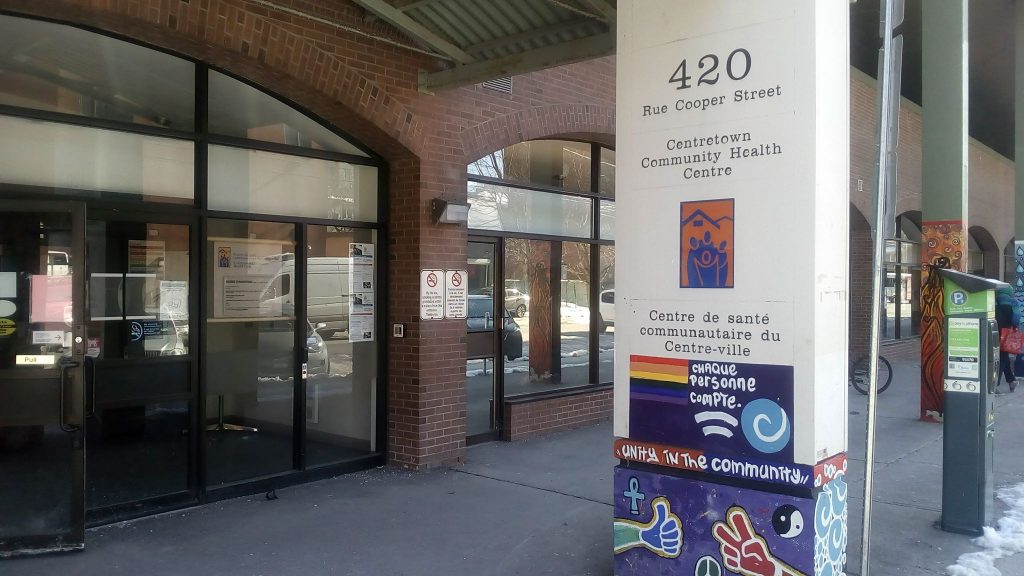Centretown Community Health Centre receives official French designation
By Connor Oke
The Centretown Community Health Centre has been granted an official French language designation from the Ontario government, signalling the centre’s capacity to fully operate in either of Canada’s official languages.
The French language designation is voluntary, and health organizations are able to apply for it after demonstrating their ability to permanently offer quality services in French.
Simone Thibault, the Cooper Street health centre’s executive director, described the designation as a clear indication of commitment to Ottawa’s francophone community.
Thibault said seeking out the official designation took the centre a step beyond simply having a policy of providing services in French.
“By just having a policy, it can change at any time. We could have chosen to just keep at it, we don’t need to be designated,” Thibault said. “But what if the board changes or management changes? It’s good to have the designation in your infrastructure to be clear. And it sends a message to the francophone community that they are part of our community.”
The Centretown Community Health Centre must now continue to hire and train key staff members to operate in both English and French, as well as ensure that francophones are fairly represented on the organization’s board of directors.
Additionally, Thibault said the health centre will be ramping up its outreach to Centretown’s francophones to find new ways to address the community’s needs. In particular, Thibault highlighted the need to reach isolated francophone seniors living in the downtown core, as well as recent French-speaking immigrants.
“We see many more refugees and immigrants coming from countries where French is the most common language, and we need to ensure their integration and vibrancy into the community,” Thibault said. “They sometimes pick Ottawa because they think we are bilingual and when they arrive it’s not necessarily the case.”
Nora Chahine, a francophone resident of Centretown, said that she mainly uses English when accessing services, but she appreciates being able to use French as well.
“I often search for a word in French and the workers will understand me, which is nice,” said Chahine. “But I do think services in Centretown should hire more French workers. This is Canada’s capital — we should use both languages.”
According to Canadian census data from 2011, 12.8 per cent of Centretown residents list French as their first language. The CCHC also serves the residents of the Glebe and Old Ottawa South, where 11.2 per cent of residents consider French their mother tongue.
Despite this relatively small proportion, the Centretown Community Health Centre has been an outspoken advocate of official bilingualism in Ottawa. The health centre’s website hosts several articles in support of the official policy.
The Ontario government passed a bill at the end of 2017 affirming Ottawa’s official bilingual status.
Rideau-Vanier Coun. Mathieu Fleury is an outspoken advocate for French services in the city.
“Forty-five percent of Ottawa describe themselves as bilingual,” said Fleury. “That’s almost half of the community that can benefit from French services. The reality is that programs evolve as community needs change. We’ll see this as French grows in the centre and west of the city.”
John Trent, a co-president of Dialogue Canada’s Bilingual Ottawa committee, a group looking to protect and promote bilingualism in the capital, said it’s important that organizations take action. However, he said the city needs to do more to promote French services flowing from its bilingual policies.
“Any public policy, such a bilingualism, must be promoted from the top down. Once that is done, other organizations will come on board,” said Trent. “The idea of bilingual services is not in the forefront of people’s minds. We need to give French more visibility and priority.”

